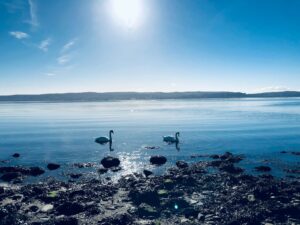Maldives has highest levels of microplastics in the world
The Maldives has the highest levels of microplastic pollution on the planet, according to recent research published in the Journal Science of the Total Environment.
Marine scientists from Flinders University in Australia recorded the levels of microplastic pollution in the sand across 22 sites off the coast of Naifaru.
They found that the levels of microplastics near the Maldives was amongst the highest in the world.
According to the researchers, this could severely impact marine life and also threaten the livelihoods of island communities.
Microplastics absorb and give off chemicals and harmful pollutants that can damage aquatic ecosystems and they are also linked to harmful health effects in humans, including various cancers, and weakened immune systems.
The researchers have said that these plastics were probably transported by ocean currents from neighbouring countries like India, but they have also said that poor sewerage and wastewater systems are likely to be a major contributor.
Lead researcher, Toby Patti said: ‘The majority of microplastics found in our study were less than 0.4mm in width, so our results raise concerns about the potential for microplastic ingestion by marine organisms in the shallow coral reef system.
‘The accumulation of microplastics is a serious concern for the ecosystem and the local community living off of these marine resources, and can have a negative impact on human health.’
Professor Karen Burke Da Silva added: ‘This small island nation encounters several challenges regarding waste management systems and has seen a 58% increase of waste generated per capita on local islands in the last decade.
‘Without a significant increase in waste reduction and rapid improvements in waste management, small island communities will continue to generate high levels of microplastic pollution in marine environments, with potential to negatively impact the health of the ecosystem, marine organisms, and local island communities.’
Photo Credit – Pixabay












